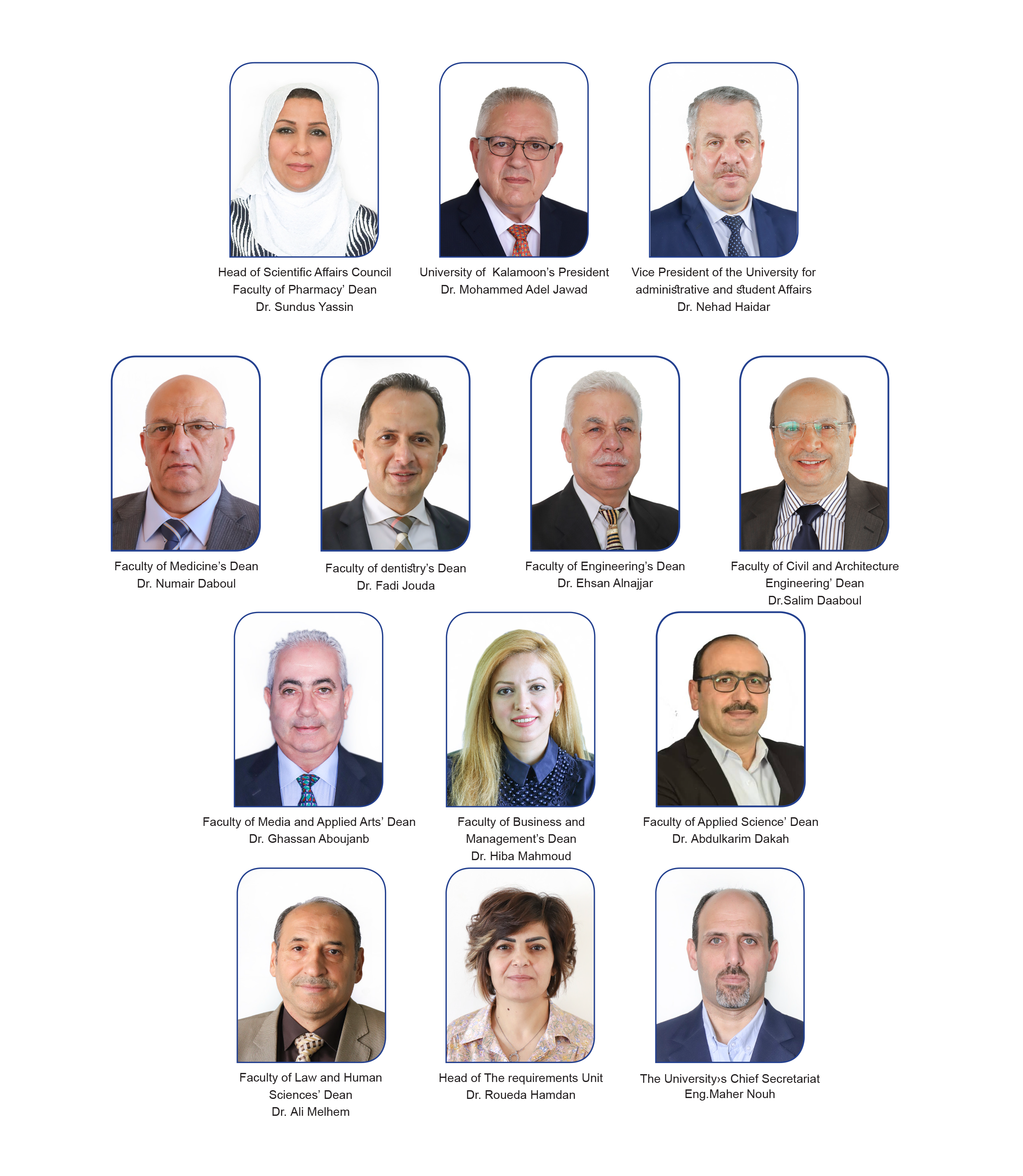The University Councils
University Council

The University Council consists of:
- The University President.
- The University Vice Presidents.
- The Deans of Colleges.
- The Institute Directors.
- A representative of the Ministry of Higher Education.
- The University Secretary.
- A representative of the university’s faculty members from among the university’s faculty members, nominated by the University Teachers’ Syndicate branch. If the University does not have a Syndicate branch, the Executive Office shall nominate the representative.
- A representative of the university’s students from among the university’s students.
- A number of academic and public figures nominated by the Board of Trustees in accordance with the provisions of Article 21 of the Legislative Decree No. 36 of 2001, including a representative of the founding company’s board of directors.
- The University Secretary shall serve as the Council’s Secretary.
- The University Council shall meet at least twice a month. The University President may invite a number of experts and considerable individuals to University Council meetings without giving them the right to vote.
- A University Council member shall adhere to a dress code, conduct, and behavior befitting his or her university position.
The University Council’s Duties:
- Implementing the university’s general policy by designing and organizing the university’s education, research, and training programs, and developing plans to provide adequate resources to achieve this.
- Developing a plan for building construction and completing and developing the university’s laboratories, equipment, and libraries.
- Proposing the university’s executive regulations and the internal regulations of the colleges and institutes.
- Proposing the appointment of faculty members, their transfer within the university, and their secondment, establishing contractual regulations, and determining their wages, compensation, bonuses, and all other matters related to their work.
- Proposing to the Higher Education Council the conditions for student admission and their number at the university.
- Regulating the affairs of various scholarships and academic awards.
- Determining the university calendar, the start and end of each semester, exam dates, the issuing of exam results, and vacations for students and faculty members.
- Proposing the suspension of teaching in certain colleges and specializations after to the approval of the Higher Education Council.
- Awarding academic degrees.
- Awarding honorary doctorates in accordance with the principles approved by the Higher Education Council.
- Accepting donations received by the university through endowments, wills, gifts, and other forms of support, and managing them in accordance with Syrian legislation, all in a manner that does not conflict with the university’s objectives or the interests of the state.
- Establishing and regulating the general policy for books, references, university periodicals, and electronic libraries.
- Establishing regulations for libraries, hospitals, museums, university campuses, and other university facilities and activities.
- Approving cooperation agreements with Syrian, Arab, and foreign universities, as well as Arab, regional, and international organizations, and receiving academic figures.
- Considering all the matters submitted to it by the university president.
- Delegating some of the council’s duties to the university president.
Student Affairs Council
Scientific Affairs Council
Quality Council
Scientific Research Committee
